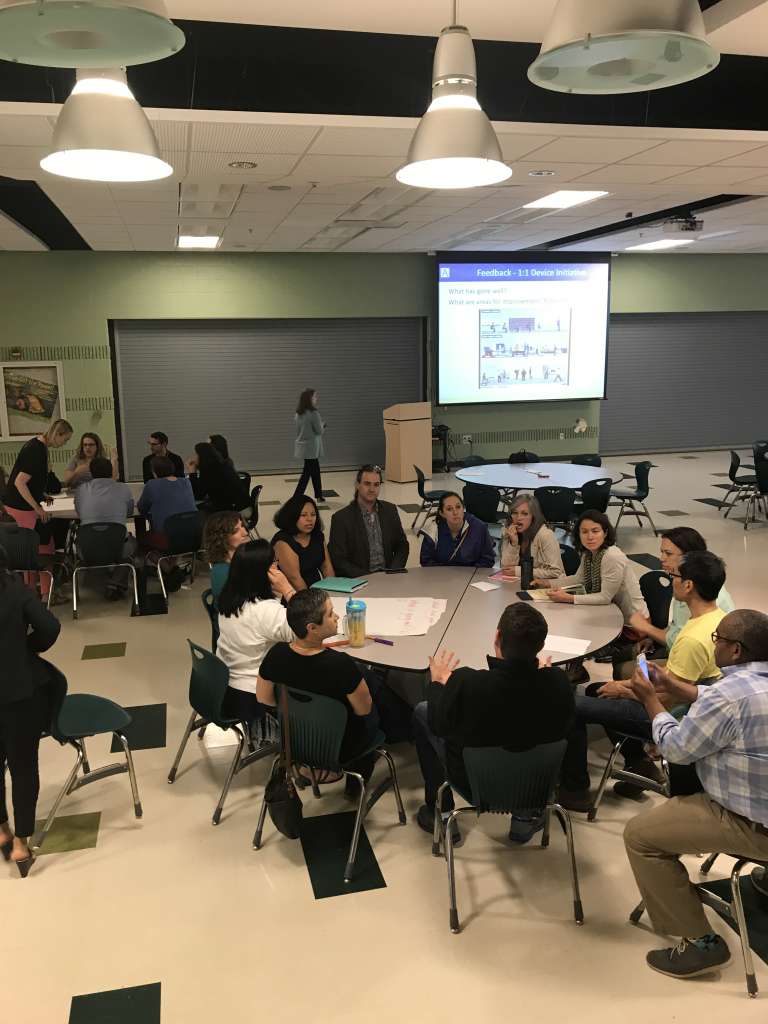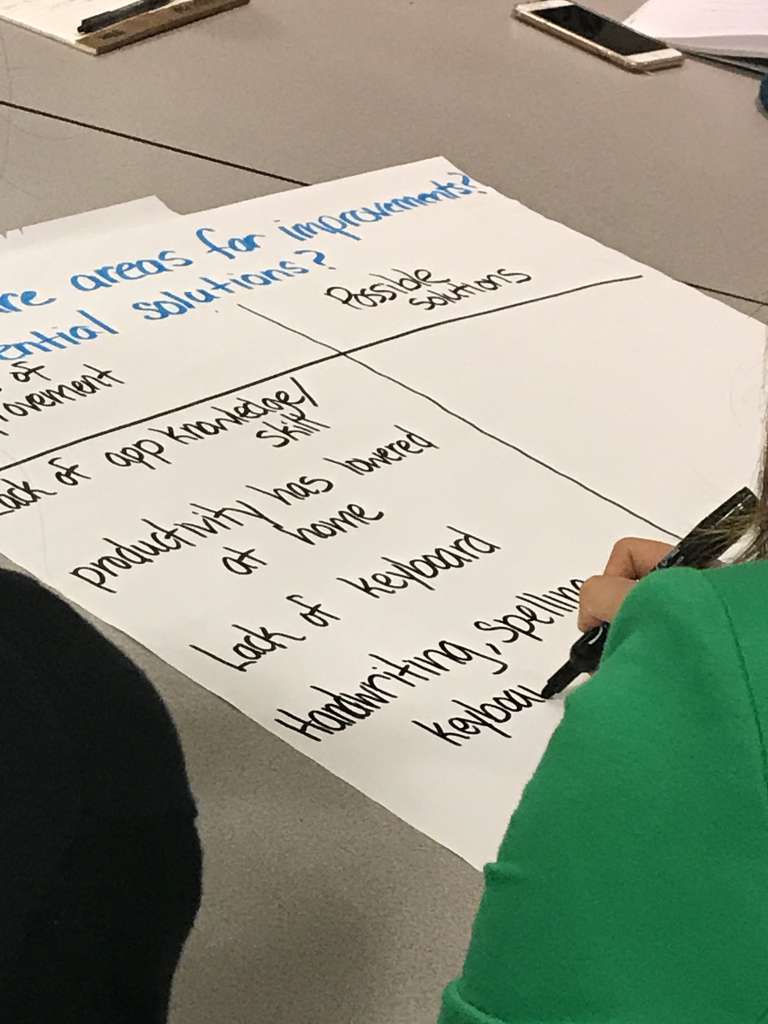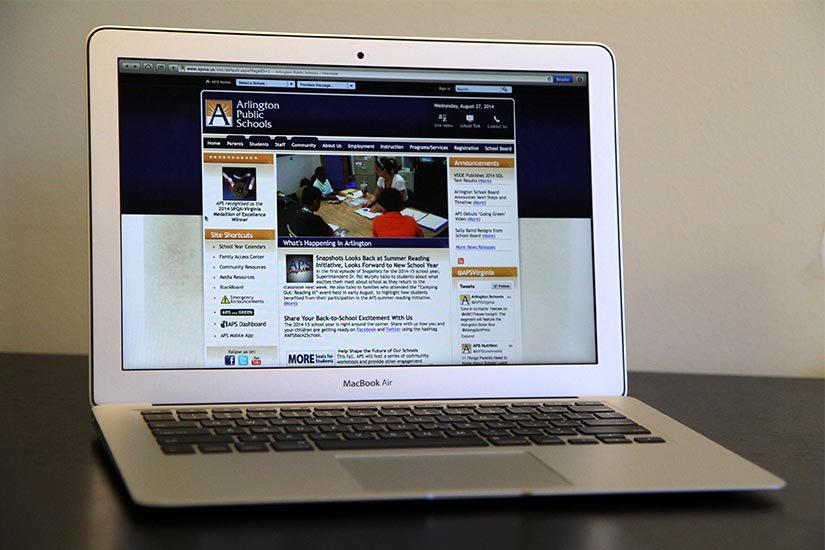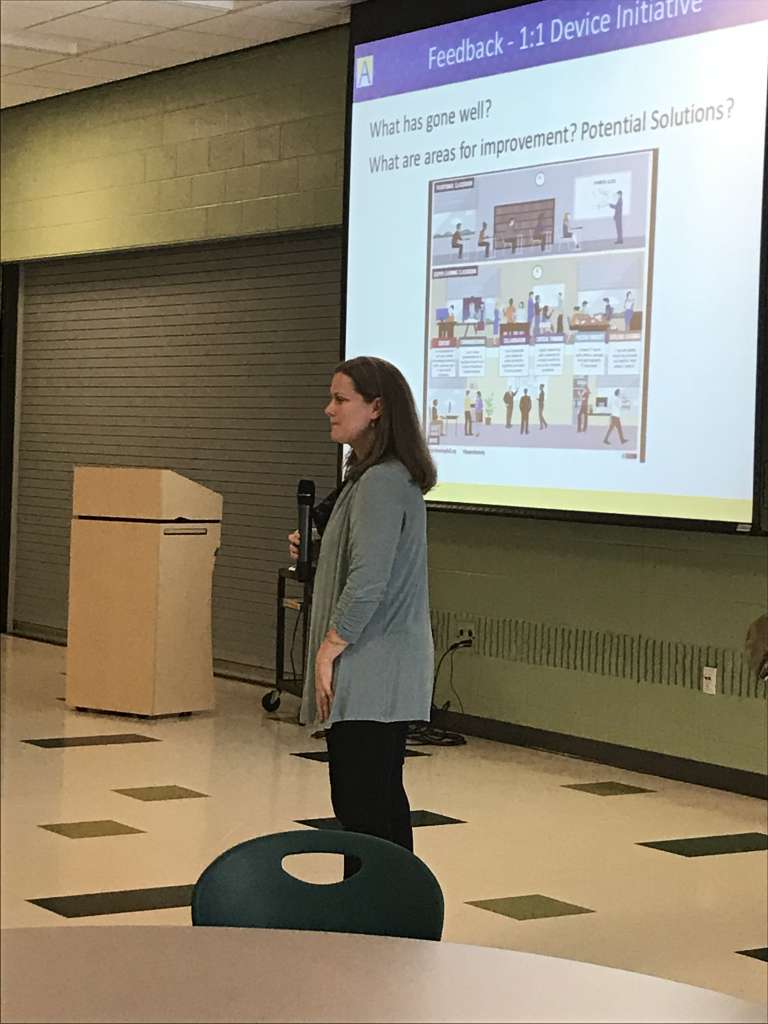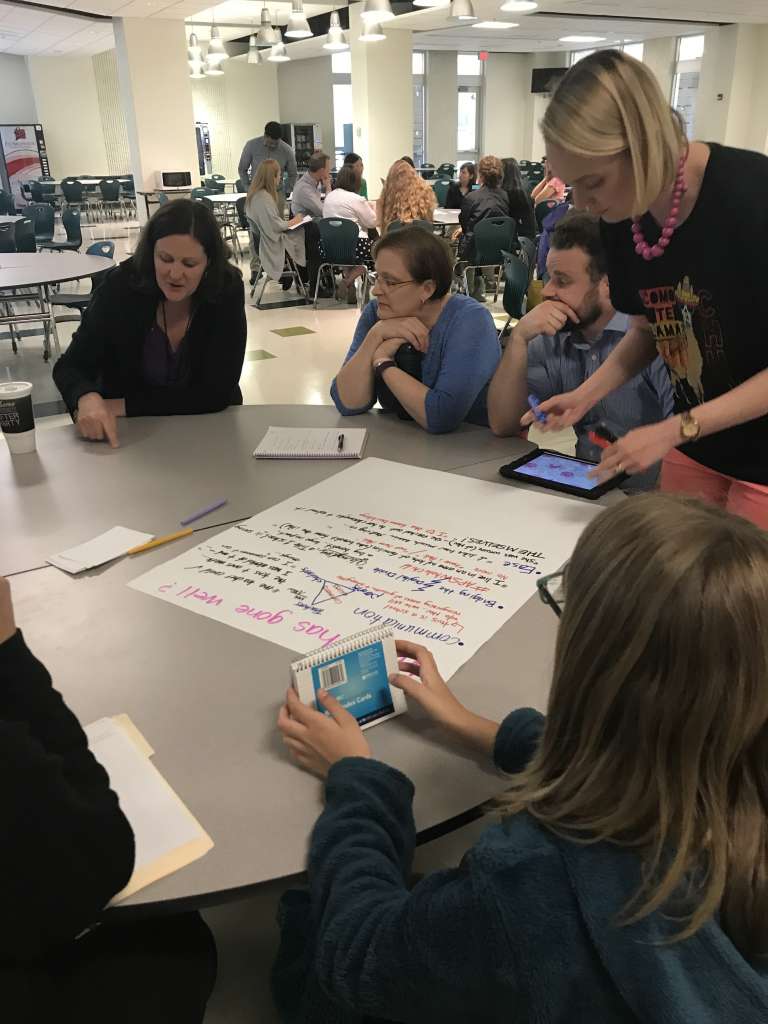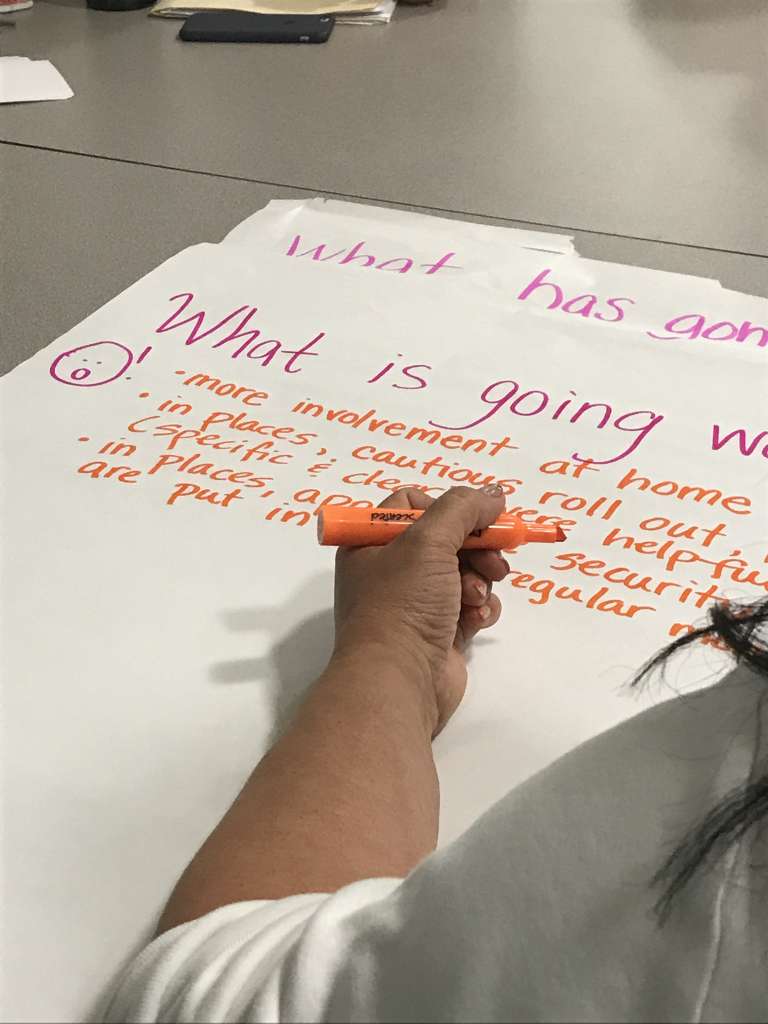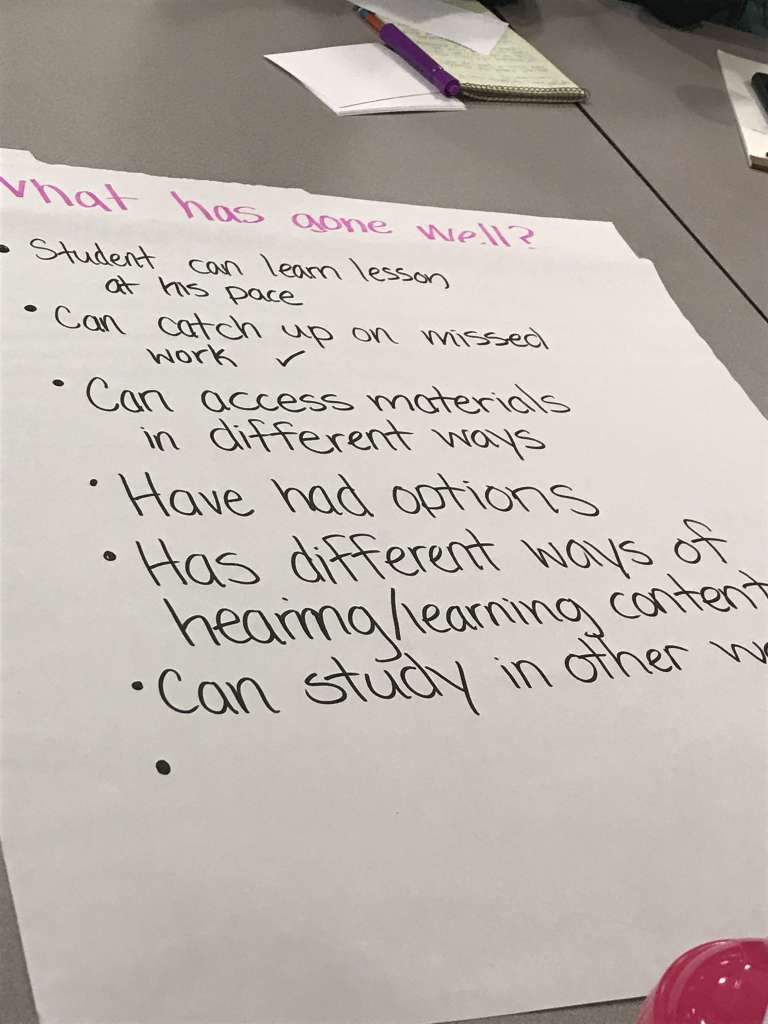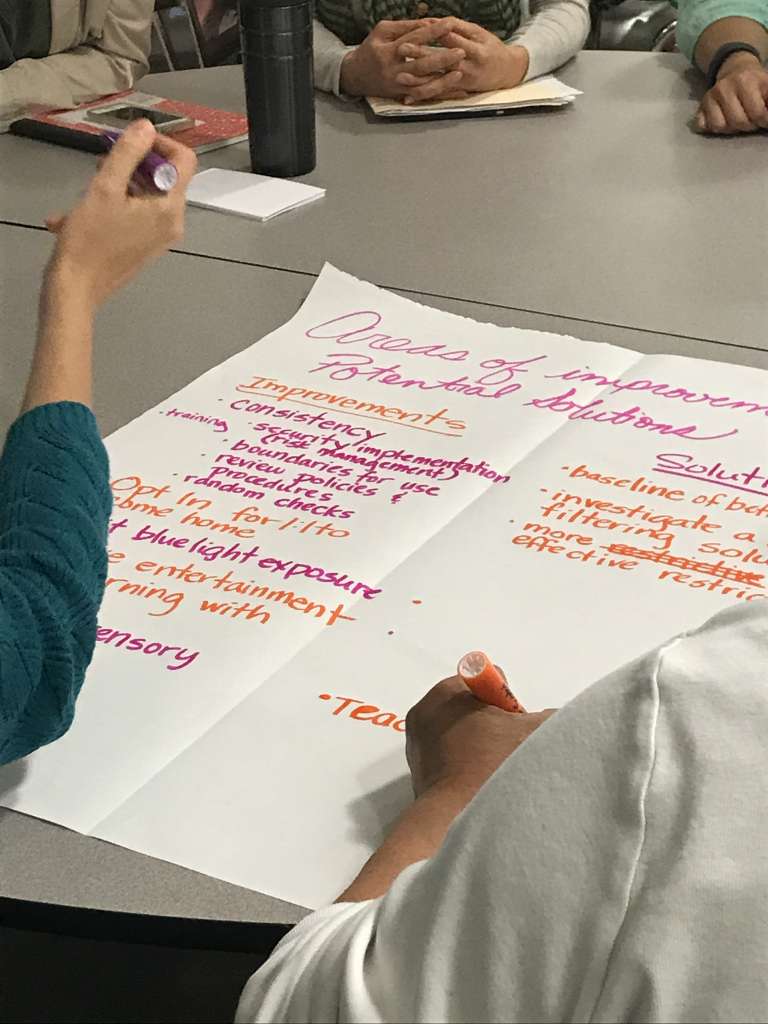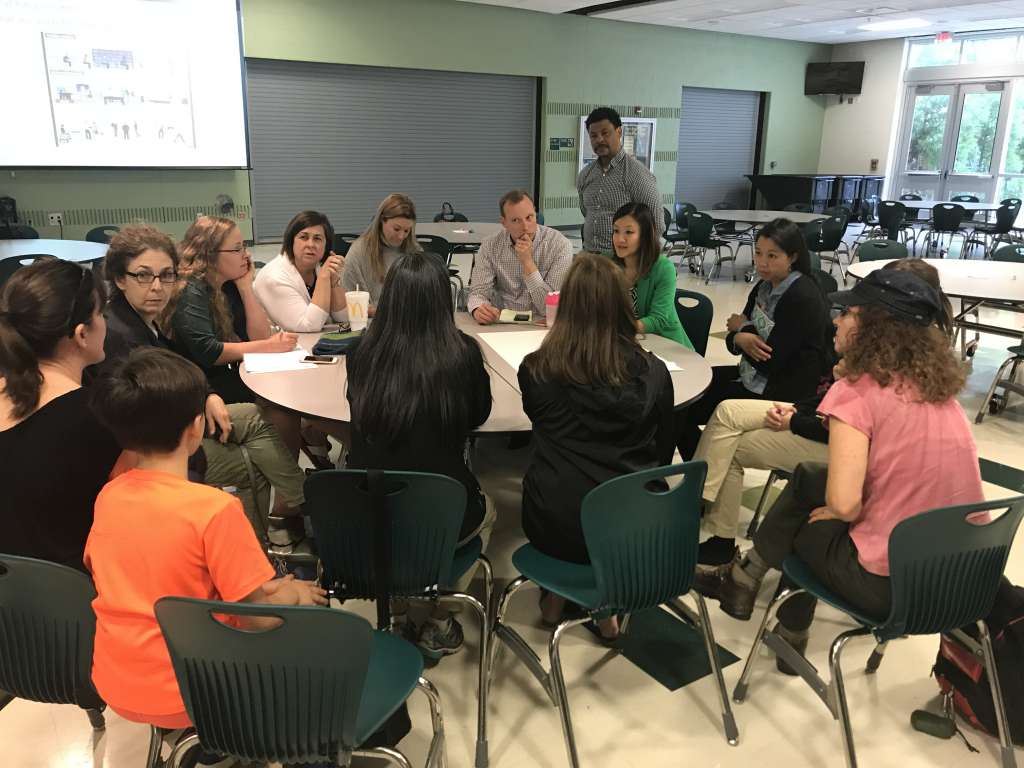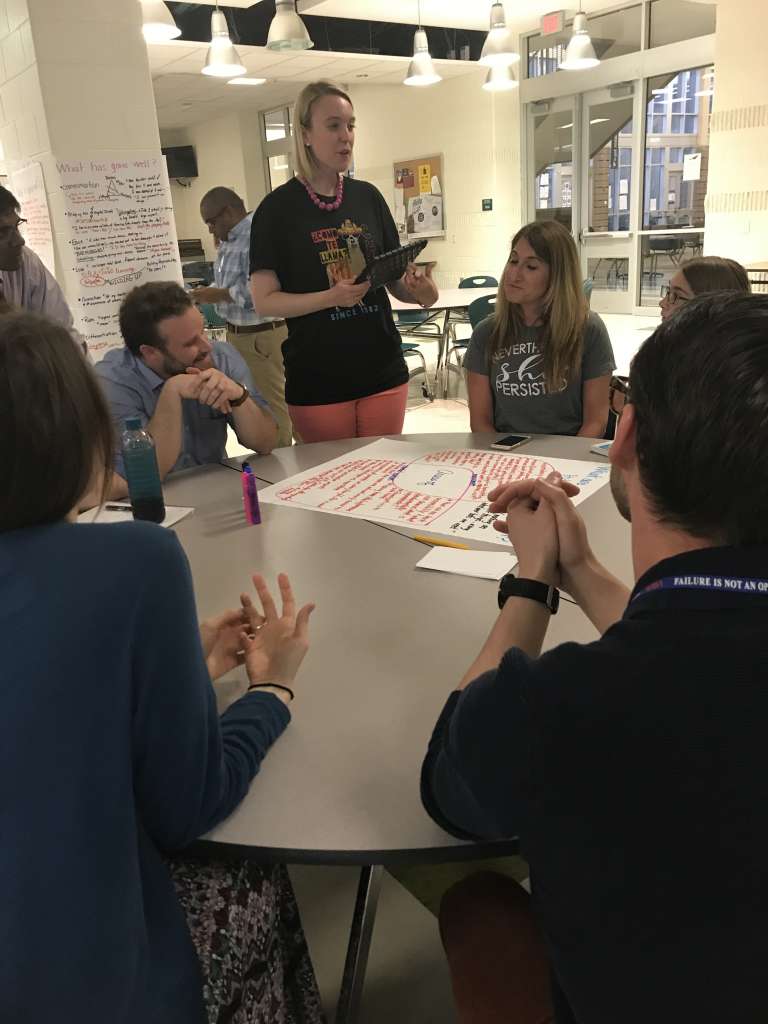Arlington Public Schools parents and teachers remain divided over the county’s one-to-one technology initiative ahead of possible revisions to the school system’s strategic plan later this year.
The rollout of the program began during the 2014-2015 school year and provides iPads for elementary and middle school students, Macbook Air laptops for high school students. The hope was that every student attending an Arlington school would have a device by 2017.
Prior to the program teachers had to check out laptops for assignments that were based online, or reserve computer lab space. In some cases, students had to pair up to complete assignments.
One middle school parent said that although her children have access to technology at home, the program is the county’s “best option” for those who don’t — helping to level the playing field for those from disadvantaged backgrounds.
Attended by parents and teachers, the conversation was focused on how the technology is impacting the classroom. The main concerns for many parents were how teachers could balance the use of the technology with traditional learning and how parents could monitor how their child is using their device.
Jennifer Burgin, a second grade teacher at Oakridge Elementary School, shared how her students used their iPads to identify real deer teeth samples. When the assignment was over, the devices were replaced with pencil and paper.
“iPads are not meant to replace me, instead they help unleash me,” said Burgin. “As I learn more about deeper learning practices and ensuring equity for all my learners, I use iPads to my advantage when they benefit all learners.”
Several middle school teachers said that the technology makes their students more interested in learning, allowing them to research additional information or record and re-watch their teacher explaining challenging concepts.
Some parents, however, wanted to know what is being done to protect children from the dangers of the internet, with some saying there needs to be a county-wide policy on the use of the devices.
While there are schools that have blocked apps and have teachers conducting spot checks on student devices, parents said that there are still students who get in trouble for breaking the classroom guidelines. One anonymous parent alleged there is a culture of students using their iPads for inappropriate content.
“I can tell you that if a child is reported to have inappropriate content, their iPad is checked and if the content is there, the iPad is taken away from the child,” she said. “But that is a Band-Aid on instance on a much wider systemic problem.”
The one group that was absent from the meeting were parents of high schoolers. The older students got laptops instead of tablets because of their heavier course load and lengthier assignments.
“[Now] that students have laptops — which they have by and large learned to bring to class, charged, every day — [it] has facilitated a sea-change in how I deliver instruction,” said Doug Burns, an English teacher at Wakefield High School. He said that an effective lesson plan helps keep students from misusing their devices.
Some suggestions for a more cohesive program included a training program for both teachers and parents, and placing more restrictions on the devices.
“If they would have thought about curriculum, investigated helpful apps, locked down the iPads to only those apps, not provide Safari, and train the teachers prior to rollout, the iPad initiative could have been much more successful,” said one parent.
APS is set to revisit its strategic plan for the devices later this year.



